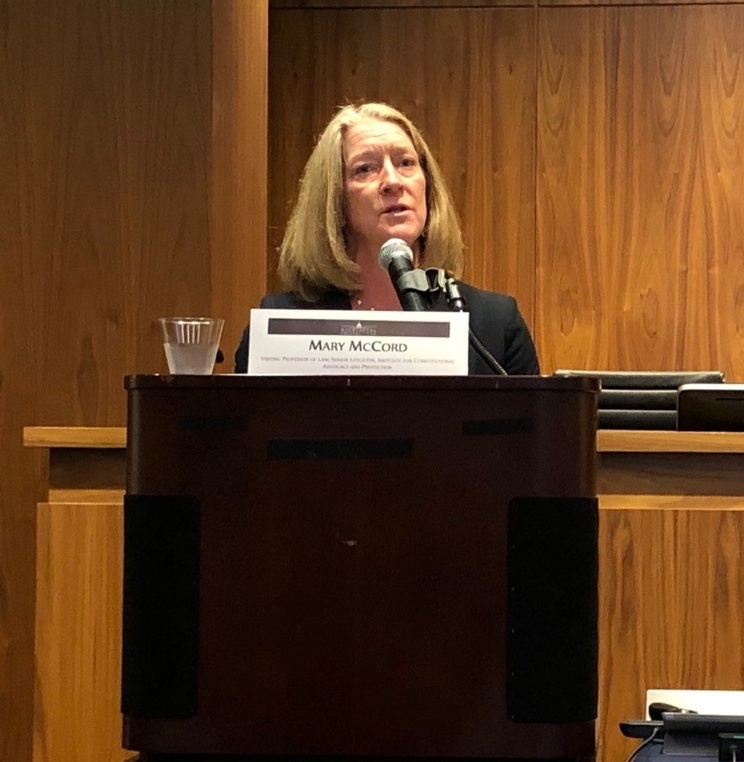National Security Law Brief Hosts Domestic Terrorism Symposium
Oct. 30, 2019

On Wednesday, Oct. 30, American University’s National Security Law Brief hosted a day-long symposium, “Combating the Threat of Domestic Terrorism in the 21st Century.”
The event, presented in collaboration with the Center for Human Rights and Humanitarian Law and AUWCL’s new Tech, Law, Security Program (TLS), sought to assess today's threats of domestic terrorism in the post-9/11 era. Panelists and speakers addressed the challenges of studying and stopping domestic terrorism, along with the creation of new domestic terrorism legislation. Mary McCord, legal director for the Institute for Constitutional Advocacy and Protection, served as keynote speaker.
The symposium’s first panel, “Challenges in Investigating, Preventing, & Prosecuting Domestic Terrorism,” moderated by American University Professor of Education and Sociology Dr. Cynthia Miller-Idriss, explored the role of technology and social media in radicalization, as well as methods and challenges of countering violent extremism. It also addressed how government, business, and nonprofit organizations can work together to improve the prevention and response.
During “Exploring the Implications of Domestic Terrorism Legislation,” moderated by TLS Scholar-in-Residence Alexander Joel, panelists explored the potential positive and negative implications of creating new domestic terrorism statute, including how new legislation may hurt or harm communities of color, increase authorities of the intelligence community, and infringe upon civil liberties.
“What does [domestic terrorism] have in common with international terrorism—advancement of a political agenda, fear, intimidation, and coercion,” said McCord, former Acting Assistant Attorney General for National Security at the U.S. Department of Justice from 2016-17. Previously, she served as Principal Deputy Assistant Attorney General for the National Security Division from 2014-16, and was an Assistant U.S. Attorney for nearly 20 years at the U.S. Attorney’s Office for the District of Columbia.
McCord illustrated comparisons between international Islamic extremist groups like al-Queda and ISIS and domestic white nationalists groups that have grown in popularity, noting that those that commit terroristic crimes come in all races, ethnicities, and religions. And while the U.S. has a number of statutes that apply to domestic terrorism, the statutes do not cover the two most recently utilized tactics of these terrorists—mass shootings and vehicular attacks.
“The question is, would anything change by us filling these gaps?” McCord said. “There are three reasons why it might: one is to put international and domestic terrorism on the same world plane. Another is the gathering of better and more comprehensive data about the threat of domestic extremism in the United States, and the third is the ability to provide more resources to combating the threat, investigating the threat, and understanding the threat.”